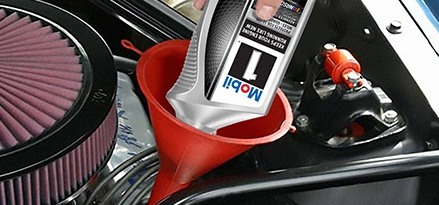How to Make Your Car Engine Perform Better
Proper Maintenance
Regular Oil Changes
Oil is the lifeblood of your car’s engine. It lubricates moving parts, reduces friction, and helps to remove heat. Getting your oil changed regularly is one of the most important things you can do to keep your engine running smoothly. The best oil change interval for your car will depend on your driving habits and the type of oil you use. However, most experts recommend changing your oil every 3,000 to 5,000 miles.
Air Filter Replacement
A dirty air filter can restrict airflow to your engine, which can lead to a loss of power and fuel efficiency. Replacing your air filter is a simple and inexpensive way to improve your car’s performance. Most experts recommend replacing your air filter every 12,000 to 15,000 miles.
Spark Plug Replacement
Spark plugs are responsible for igniting the air-fuel mixture in your engine’s cylinders. When spark plugs become worn or fouled, they can cause misfires, which can lead to a loss of power and fuel economy. Replacing your spark plugs is a relatively inexpensive way to improve your car’s performance. Most experts recommend replacing your spark plugs every 30,000 to 60,000 miles.
Performance Modifications
Cold Air Intake
A cold air intake system replaces your car’s stock air filter and intake manifold with a high-flow system that draws in cooler, denser air from outside the engine compartment. This can improve your car’s power and torque, especially at high RPMs.
Exhaust System Upgrade
An aftermarket exhaust system can improve your car’s exhaust flow, which can lead to a modest increase in power and torque. However, it is important to choose an exhaust system that is designed specifically for your car. An improperly designed exhaust system can actually hurt your car’s performance.
Engine Tuning
Engine tuning is the process of modifying your car’s engine control unit (ECU) to improve its performance. This can be done through the use of a tuner, which is a small electronic device that plugs into your car’s diagnostic port. Tuning can improve your car’s power, torque, and fuel economy. However, it is important to have your car tuned by a qualified professional. An improperly tuned engine can cause serious damage.
Driving Habits
Avoid Aggressive Driving
Aggressive driving habits, such as hard acceleration and braking, can put unnecessary stress on your car’s engine. This can lead to premature wear and tear, and it can also reduce your car’s fuel economy.
Use the Correct Gear
Driving in the correct gear for your speed and load can help to improve your car’s fuel economy and performance. For example, driving in a lower gear when climbing a hill can help to reduce strain on your engine.
Avoid Lugging the Engine
Lugging the engine occurs when you are driving in a gear that is too high for the speed and load. This can put unnecessary stress on your engine and it can also reduce your car’s fuel economy.
Conclusion
By following these tips, you can help to improve your car’s engine performance and extend its life. Proper maintenance, performance modifications, and good driving habits can all contribute to a better performing car.





